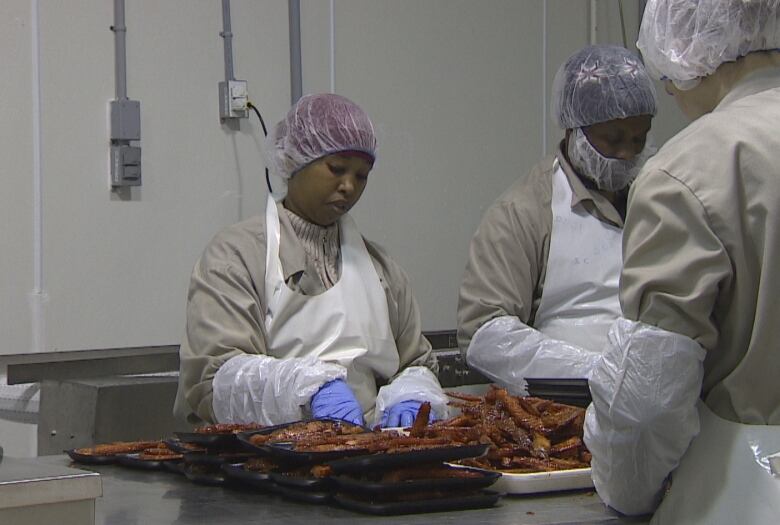Mohamed says she is sometimes lonely, but has not lost sight of her goals
Shane Ross

When Shukri Mohamed slipped out to a supermarket in Somalia to buy rice and vegetables for supper on Dec. 20, 2008, she could not imagine the tragedy that would forever change the course of her life.
When she returned home, her parents and five younger siblings were gone. All she knew: “Some guys come in my home and they took my family.”
For years, Somalia had been in turmoil, wracked by drought and political upheaval. A UN report called it the worst security situation since dictator Mohamed Siad Barre was overthrown in 1991.
Deadly battles were ongoing between militias, smugglers, Ethiopian troops and clan warlords.
Mohamed was 29 on the day her family went missing. Crying and confused, she asked her neighbours for help. They took her in.
Hundreds of thousands of Somalis were fleeing the country as refugees. A couple of weeks later, with the help of her neighbours, Mohamed became a refugee herself, landing in Cairo.
For the next seven years, she wondered what happened to her family. Were they dead or alive?

In 2016, she got word that, yes, they were alive and home again. Soon afterward, Mohamed’s youngest sister joined her at the refugee camp in Cairo. She learned her family had been held captive by people who had demanded money. They were released after three years.
Because of her refugee status, she could not return to be with her family in Mogadishu. She said the United Nations wanted to relocate her to the Netherlands, but she pleaded to be sent to a country where she could learn English, preferably Canada.
On Nov. 26, 2018, she said goodbye to her sister and boarded a plane in Cairo that would take her to Frankfurt, then Toronto, then her new home in Charlottetown.
“I am very happy to live in P.E.I.” she said. “It is a beautiful [place] and all the people are good. If they saw me they say to me ‘hi’ and I say ‘hi.'”
Starting a new life in a different country was exciting, but also daunting. She cried a lot that first year. She wasn’t used to the culture — or the cold P.E.I. winters. And, of course, every day she misses her family.
Mohamed has still not seen her parents in person since the day she left for the supermarket 11 years ago, but she wakes up in her small Charlottetown apartment every morning around 5 a.m. — noon in Mogadishu — and video chats with them.
“It makes me happy to speak with my family.”
‘I don’t want someone helping me’

Mohamed, who has permanent resident status, said it is important for her to be self-sufficient and not rely on government assistance.
“I don’t want someone helping me, because I can work. If I am sick, yes, it is possible to help me. If you are not sick and you are young, you must work.”
Two months after arriving on P.E.I., she got a job as a housekeeper for a family in Stratford. Last summer she worked as a housekeeper at the Gables of P.E.I. resort in Stanley Bridge.
She looked for work closer to Charlottetown so she could take English courses at night at Holland College. Since October, she’s been working as a fish packager at True North Salmon in Charlottetown, where she makes about $13 an hour.
“I like my job,” she said. “They give me money every two weeks, so I must be honest and do everything that they need — to be honest, to be on time, to be hard worker.”
A simple life
Ivan Nowlan, general manager at True North, calls her a “very good employee” who is sincere and “easy to get along with.”
She takes the five-minute bus ride and works every weekday from 8 a.m. to 4:30 p.m.
Tuesdays and Thursdays, she goes home, changes, and walks to English class at Holland College from 6 p.m. to 8:45 p.m.
She takes Saturdays off to clean her apartment, do laundry, read, watch cooking videos on YouTube and prepare meals for the week.

On Sunday, she makes extra money as a cleaner at an office building.
“On Monday I am tired,” she said.
Mohamed said she makes enough money to pay her bills, including rent for her small one-bedroom apartment, and to send a few hundred dollars a month back to her family in Somalia.
Still, she is looking for a third job not just to make more money, but to keep busy. When she spends too much time alone in her apartment, she gets lonely, stressed and worries about her family.
But she refuses to feel sorry for herself and has set goals for the coming years: improve her English, study to become a nurse and buy a car.
She said she would also like to get married, have children and someday be reunited with her family. She hopes her sister, who is still a refugee in Egypt, can move to Canada in the summer.
“I hope to have a good life,” she said. “And I have a good life now.”

Source: CBC


